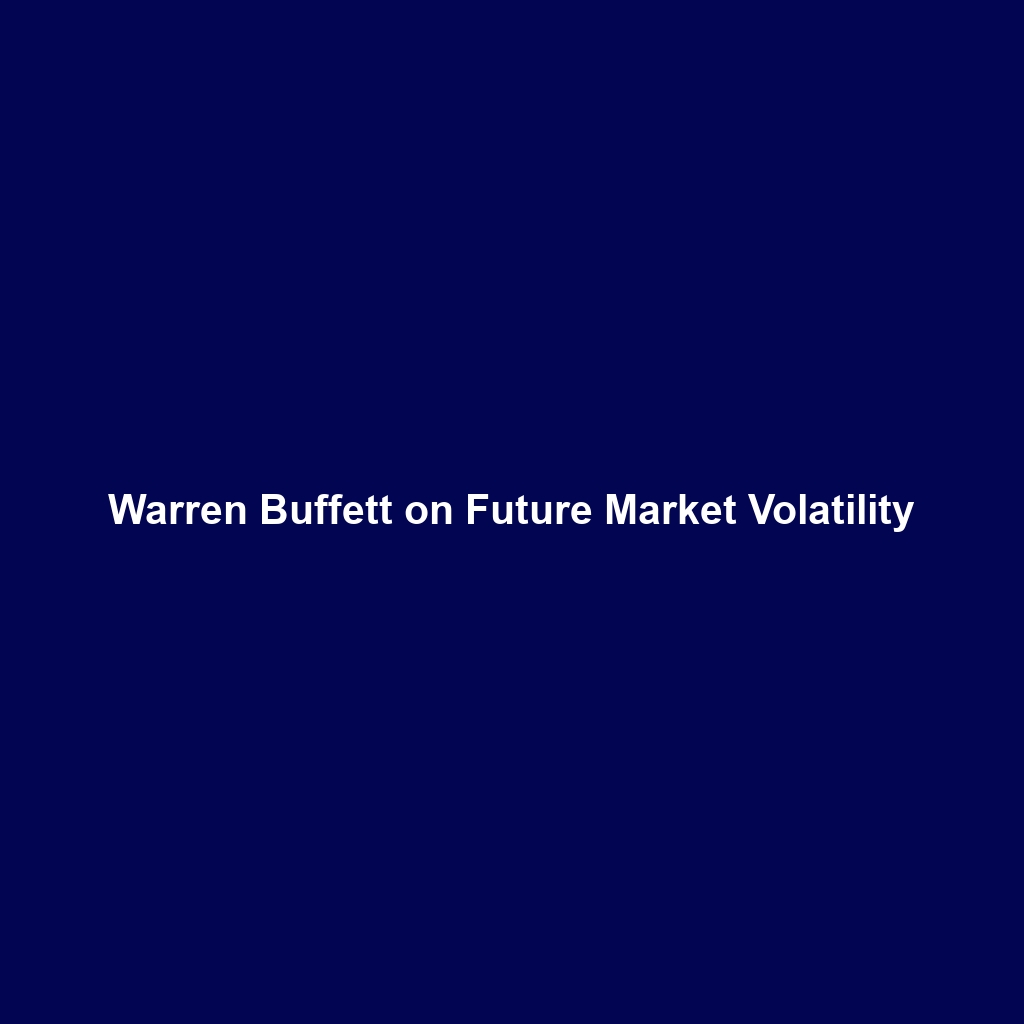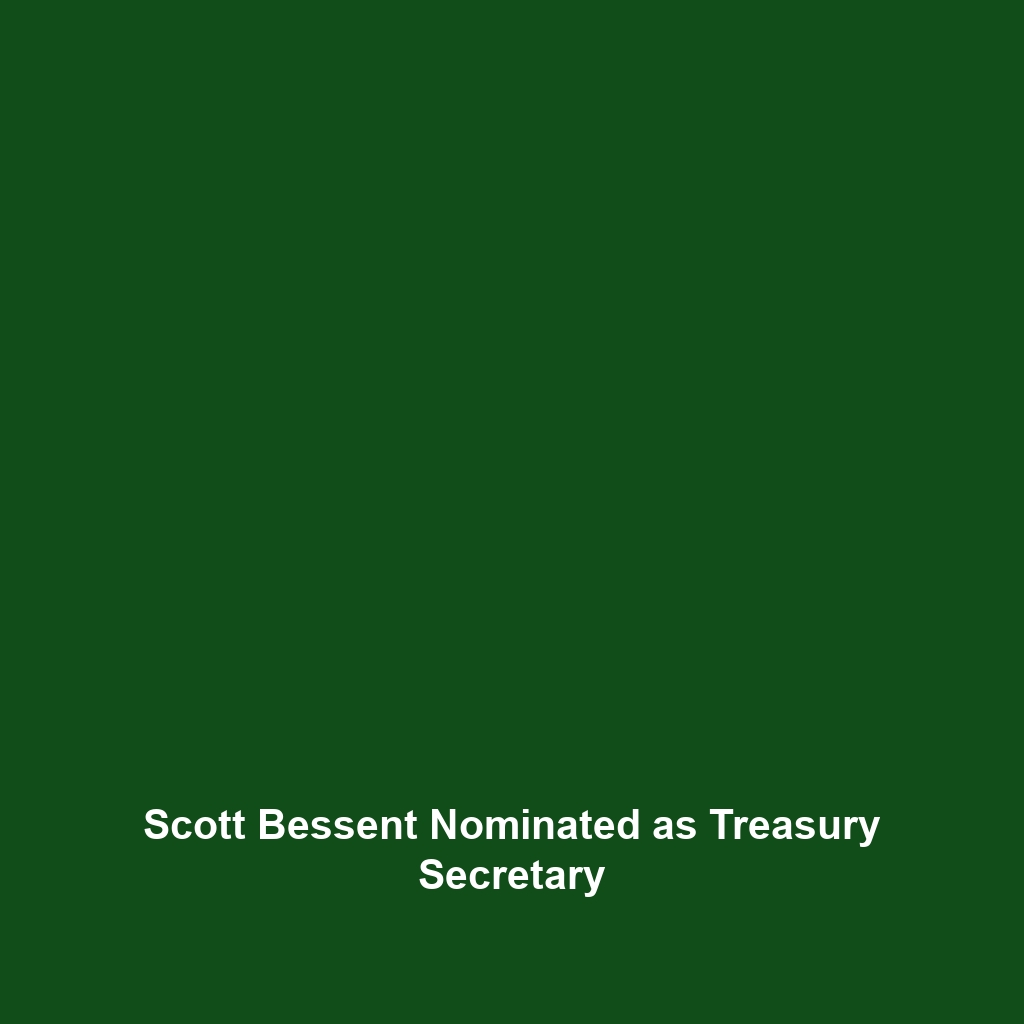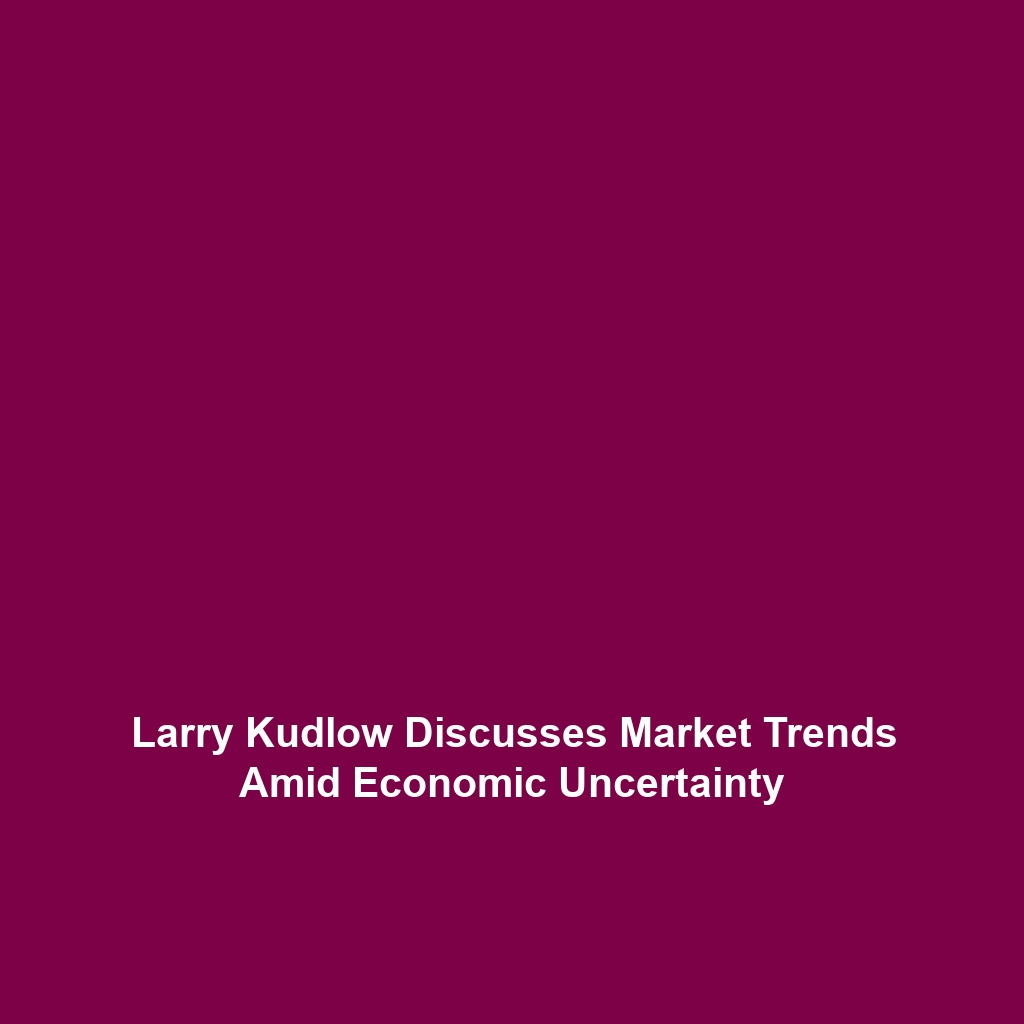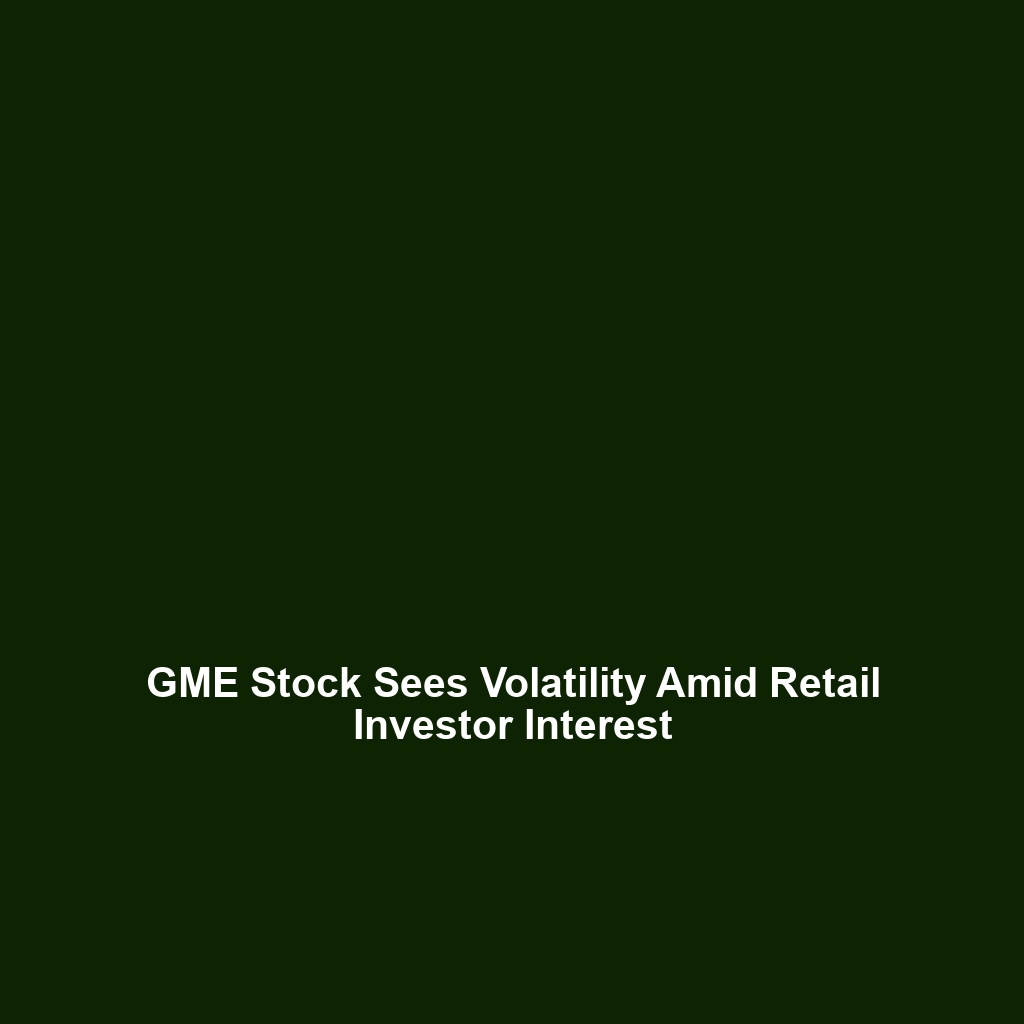Your cart is currently empty!
Tag: Supply Chain Disruptions

Warren Buffett on Future Market Volatility
Warren Buffett on Future Market Volatility
Warren Buffett on Future Market Volatility
Renowned investor Warren Buffett has recently expressed concerns over potential market volatility in 2024, urging investors to adopt long-term strategies focused on value investing. In a commentary reported by CNBC, Buffett outlined his views on forthcoming economic unpredictability while emphasizing the importance of a disciplined approach to investing.
Predictions for 2024 Volatility
Buffett, known as the Oracle of Omaha, has observed various economic indicators that suggest heightened market volatility in the upcoming year. He pointed to existing economic conditions, including inflation rates, supply chain disruptions, and geopolitical tensions, which may contribute to fluctuations in the financial markets.
In a recent interview, he stated, “The market is unpredictable, and anyone who claims to have it all figured out is likely misleading you.” This candid admission underscores the sentiment of many experts who agree that investors must brace for an uncertain financial environment.
Historical Context of Market Volatility
Historically, market volatility has often been triggered by a combination of events. For instance, the market’s dramatic downturn in March 2020 due to the onset of the COVID-19 pandemic prompted a reevaluation of investment strategies across various sectors. Similarly, economic recovery phases are often accompanied by unpredictability.
According to recent data from MarketWatch, periods of increased volatility can lead not only to lower stock prices but also to a shift in investor behavior. Traditional strategies focusing on value investing become especially important in such circumstances, allowing investors to navigate through turbulent times.
Buffett’s Advocacy for Long-Term Investing
Buffett’s investment philosophy centers on long-term value creation rather than short-term speculation. He advocates for investing in fundamentally strong companies that exhibit resilience despite market fluctuations. This approach aims to withstand economic downturns and offers potential for substantial long-term growth.
“If you don’t see a 10-year horizon for your investments, you should reconsider your strategy,” Buffett advised. This sentiment mirrors what many financial advisors advocate, suggesting that the best way to protect investments—particularly during volatile periods—is to focus on the underlying value of assets.
Expert Opinions on Market Strategies
Financial analysts agree with Buffett’s assessment. According to a report by Bloomberg, experts recommend building a diversified portfolio comprised of stocks, bonds, and other asset classes that traditionally perform well during market instability. Diversification can help mitigate risks associated with specific investments.
In addition to diversification, some experts suggest reviewing investment goals and timelines regularly, especially as economic conditions evolve. It’s crucial to remain informed and adaptable in response to developing market trends and indicators.
Implications for Individual Investors
For individual investors, Buffett’s guidance presents actionable strategies for uncertain times. Staying committed to a long-term investment philosophy may help withstand short-term market oscillations. Engaging with financial advisors to develop personalized investment strategies aligned with risk tolerance can also prove beneficial.
Additionally, being cautious with high-risk investments during periods of anticipated volatility is advisable. As Buffett states, the most effective strategy often involves ignoring market noise and focusing on the intrinsic value of the investment choices at hand.
Conclusion
As Warren Buffett forecasts increased market volatility in 2024, the focus on long-term investment strategies should resonate with both seasoned and novice investors. His emphasis on value-oriented investing serves as a reminder of the importance of understanding market dynamics and remaining dedicated to comprehensive financial planning.
Investors are advised to stay vigilant, review their portfolios, and leverage the insights from industry experts as they navigate through the complexities of tomorrow’s financial landscape. For those interested in further resources on value investing, financial institutions often provide educational materials, helping investors make informed decisions for their future.

Scott Bessent Nominated as Treasury Secretary
Scott Bessent Nominated as Treasury Secretary
Scott Bessent Nominated as Treasury Secretary
In a significant move ahead of the upcoming administration, former President Donald Trump has nominated billionaire investor Scott Bessent as the new Treasury Secretary. This decision is part of Trump’s broader strategy to revitalize the U.S. economy with an ambitious framework known as the “3-3-3” economic plan. The nomination has drawn attention due to Bessent’s extensive background in finance and investment management, as well as his close ties to the former president.
Profile of Scott Bessent
Scott Bessent, an accomplished financier and the former Chief Investment Officer of George Soros’ family office, has built a reputation for his strategic investment prowess. During his tenure with Soros Fund Management, Bessent was instrumental in overseeing a diversified portfolio totaling over $25 billion in assets. His experience in both macroeconomic analysis and asset management has positioned him as a prominent figure in the finance industry.
Bessent has also established his own investment firm, Bessent Capital, focusing on global markets and delivering superior returns to clients. His expertise in navigating complex financial landscapes makes him an appealing candidate for the role of Treasury Secretary, especially as the U.S. seeks to recover from the economic impacts of the COVID-19 pandemic.
The “3-3-3” Economic Plan
In his nomination announcement, Trump emphasized Bessent’s proposed “3-3-3” economic plan. This plan outlines three key focuses: fostering growth, reducing regulations, and achieving a balanced budget in three years. Bessent argues that this framework will promote both short- and long-term economic stability while also addressing pressing national issues.
Fostering growth: Bessent proposes increased investment in key sectors such as technology, infrastructure, and renewable energy. By allocating resources into these areas, he aims to spur innovation and job creation across the nation.
Reducing regulations: The plan advocates for streamlining regulatory processes that Bessent and Trump argue stifle small business growth and innovation. This would involve a comprehensive review of existing regulations and the elimination of those deemed overly burdensome.
Achieving a balanced budget: Bessent’s plan also emphasizes fiscal responsibility, with a goal to balance the federal budget within three years. This effort would focus on curtailing wasteful spending while promoting efficiency in government programs.
Reactions to the Nomination
The nomination of Bessent has elicited a range of responses from political analysts and industry experts. Supporters of the appointment highlight Bessent’s extensive experience in finance as a critical asset for the Treasury Department. They believe his knowledge can lead to effective economic strategies that align with the Trump administration’s goals.
Conversely, critics express concerns regarding the influence of wealth in government and the potential for policy decisions that favor the financial elite. They argue that Bessent’s background in hedge funds could skew his perspective on economic issues that affect everyday Americans. “There’s a fine line between encouraging investment and catering to the interests of billionaires,” noted Judy Goldstein, a political economist at the Brookings Institution.
Challenges Ahead
Should Bessent’s nomination be confirmed, he will face immediate challenges, including addressing the economic recovery post-pandemic and navigating the complexities of global trade relations. Experts point out that the ongoing supply chain disruptions and inflationary pressures will require strong leadership and innovative solutions.
Additionally, Bessent will need to work closely with Congress to implement his “3-3-3” plan, which may encounter resistance from lawmakers who prioritize different economic agendas. Building bipartisan support will be essential for any substantial changes to occur.
Conclusion
Scott Bessent’s nomination as Treasury Secretary marks a notable shift in economic leadership under the Trump administration. His proposed “3-3-3” economic plan could redefine U.S. fiscal policy if successfully implemented. As the new Treasury Secretary nominee, Bessent must navigate a landscape rife with challenges, all while demonstrating the ability to foster economic growth for all Americans. The coming weeks will be crucial as both policymakers and the public respond to this pivotal nomination.
For further updates on this nomination and its implications for U.S. economic policy, readers are encouraged to follow reliable news sources and government announcements.

Larry Kudlow Discusses Market Trends Amid Economic Uncertainty
Larry Kudlow Discusses Market Trends Amid Economic Uncertainty
Larry Kudlow Discusses Market Trends Amid Economic Uncertainty
In a recent interview, economist Larry Kudlow provided valuable insights into current market conditions amidst ongoing economic uncertainty. With rising inflation, fluctuating interest rates, and geopolitical tensions influencing economic trends, Kudlow’s perspective serves as a focal point for investors seeking to navigate these turbulent waters.
Current Economic Landscape
The U.S. economy has displayed signs of resilience in the face of multiple challenges, including supply chain disruptions exacerbated by the COVID-19 pandemic and the ongoing war in Ukraine. According to the latest reports from the Bureau of Economic Analysis, the U.S. GDP grew at an annualized rate of 2.4% in the second quarter of 2023, a strong performance relative to expectations. However, Kudlow warns that inflation, which hovered around 3.7% in August 2023, continues to be a significant concern for consumers and policymakers alike.
“Inflation is the number one enemy,” Kudlow stated, emphasizing the need for appropriate measures to stabilize prices. Historical data indicates that inflation rates at or above 3% can erode consumer purchasing power and affect overall economic growth. This volatility creates uncertainty for investors and businesses attempting to forecast their future strategies.
Interest Rates and the Federal Reserve
The Federal Reserve’s current monetary policy has also come under scrutiny as it attempts to balance economic growth with inflation control. Following a series of interest rate hikes in 2022 and 2023, many economists are debating the potential for further increases. Kudlow advocates for a more cautious approach, suggesting that while higher rates are necessary to combat inflation, they should not stifle economic growth. He argues that the Fed needs to be adaptive and flexible in its policy-making.
“The Fed must avoid excessive tightening, which could lead to a recession,” Kudlow cautioned. His remarks reflect broader concerns in the economic community, where some experts predict that continued aggressive interest rate hikes could trigger an economic downturn.
Geopolitical Impacts on Markets
Geopolitical tensions have further complicated the economic landscape. The Russian invasion of Ukraine has led to rising energy prices, which Kudlow notes is one of the contributing factors to inflation. The ongoing conflict has disrupted supply chains, driving up costs for consumers and businesses alike. Kudlow avers that unless geopolitical tensions are resolved, markets will likely continue to experience volatility.
In addition, the U.S.-China relationship remains strained, with trade policies and tariffs shaping market dynamics. Kudlow emphasizes the importance of strong international relations to facilitate trade and economic stability. “We need to ensure our partnerships are robust to mitigate risks,” he stated, underscoring the interconnectedness of the global economy.
Investment Strategies for Volatile Times
In light of these challenges, Kudlow offers strategic advice for investors. His primary recommendation is diversification. He believes that a well-diversified portfolio can reduce risk during periods of high market volatility. Investors should consider a mix of asset classes, including stocks, bonds, and alternative investments, to better position themselves against economic shocks.
Kudlow also highlighted the significance of sectoral investments. Sectors such as technology and renewable energy are likely to witness growth, while traditional sectors may face headwinds. He notes, “Investors should focus on innovation and adapt to changing market trends.” This sentiment is echoed by several analysts who argue that companies embracing technology will outperform their peers.
Looking Ahead: Future Growth Prospects
Despite the current economic challenges, Kudlow remains optimistic about the potential for future growth. He points to robust consumer spending and a resilient job market as indicators of a strong economy. The unemployment rate, which is currently at 3.5%, suggests that job security remains a critical strength in the U.S. economy.
“If we can maintain consumer confidence and reduce inflation, I believe we can see sustained economic growth,” Kudlow asserted. He encourages policymakers to prioritize growth-oriented strategies that will support businesses and foster an environment conducive to innovation.
Conclusion
As markets grapple with a unique set of challenges, Larry Kudlow’s analysis provides a valuable lens through which to understand current trends. His insights on inflation, Federal Reserve policies, geopolitical factors, and investment strategies offer a roadmap for navigating economic uncertainty. While the path ahead may be fraught with obstacles, Kudlow’s perspective underscores the importance of adaptability and foresight in achieving long-term economic stability.
For investors and policymakers alike, engaging with these trends and adjusting strategies accordingly will be crucial in the coming months. As Kudlow aptly noted, “The key to success lies in understanding the complexities of the market and preparing for whatever lies ahead.”

CPI Report Shows Inflation Cooling Amid Economic Uncertainty
CPI Report Shows Inflation Cooling Amid Economic Uncertainty
CPI Report Shows Inflation Cooling Amid Economic Uncertainty
The latest Consumer Price Index (CPI) report released by the Bureau of Labor Statistics indicates a notable slowdown in inflation, providing a sense of relief to consumers and financial markets alike. The report highlights significant trends that suggest a shift in economic conditions, particularly amid ongoing uncertainties related to the global economy.
Understanding the CPI Report
The CPI measures the average change over time in the prices paid by urban consumers for a market basket of consumer goods and services. In the most recent report, the CPI increased by only 0.3% in September 2023, much lower than the previous months, marking an annual inflation rate of 3.7% compared to 4.4% in August. This deceleration suggests that inflationary pressures may be easing, at least temporarily.
The report also revealed significant changes in specific sectors. Energy prices fell by 2.7%, contributing greatly to the overall decline in inflation. Furthermore, food prices increased moderately, rising just 0.2% for the month. These shifts indicate that while some costs remain elevated, overall pressures on consumers are beginning to moderate.
Market Reactions and Consumer Sentiment
The immediate reaction to the CPI report was positive across financial markets, with major indices showing gains in the aftermath. Investors interpreted the cooling inflation as a signal that the Federal Reserve might pause interest rate hikes, a move that could foster more consumer spending and business investment.
According to a recent survey conducted by the University of Michigan, consumer sentiment appears to be improving as well. The survey shows that respondents expect inflation to stabilize, with one-year inflation expectations dropping to 4.3%, down from 4.6% in August. This change reflects growing optimism among households about their financial futures, which could further stimulate economic activity.
Expert Opinions on Inflation Trends
Economists and financial analysts are cautiously optimistic regarding the trends reflected in the latest CPI data. Mohamed El-Erian, chief economic advisor at Allianz, noted, “The accelerating pace at which prices are rising has moderated, which is a welcome change for consumers and the economy overall.” He emphasized the importance of watching upcoming data to determine if this trend will continue.
However, some experts warn that the economic landscape remains precarious. “While the inflation numbers show improvement, we cannot ignore the ongoing uncertainties, including geopolitical tensions and supply chain disruptions, which could reverse these gains,” stated Ellen Zentner, chief U.S. economist at Morgan Stanley.
The Fed’s Monetary Policy and Future Outlook
The Federal Reserve’s decisions in response to changing inflation rates will be crucial in shaping the economic outlook for the coming months. The central bank has raised interest rates multiple times over the past year in an effort to combat inflation. However, with signs of inflation easing, there may be a shift in strategy.
Fed Chair Jerome Powell has stated that the central bank “will remain data-dependent” as it continues to navigate complex economic conditions. Analysts anticipate that the Fed may adopt a more cautious approach in its next meeting, which may include a pause in rate hikes, contingent upon sustaining lower inflation levels.
Conclusion
The latest CPI report highlights a promising trend in cooling inflation, which has provided relief to both consumers and markets. While the data indicates a positive shift, uncertainties in the broader economic landscape require continued vigilance. As businesses and households adjust to potential changes in monetary policy, the implications of these trends will be closely monitored by economists and policymakers alike.
Moving forward, the focus will be on how sustained inflation trends and consumer sentiment evolve. Stakeholders are advised to keep an eye on future reports, as they may significantly influence economic strategies and personal financial decisions.
For further reading on economic trends and consumer sentiment, visit the Bureau of Labor Statistics and the University of Michigan’s consumer sentiment survey sites.

Gianluigi Aponte
Gianluigi Aponte – Profile
Gianluigi Aponte – Profile
Introduction
Gianluigi Aponte is a renowned billionaire with influence across industries such as shipping and logistics. As of 2024, their estimated net worth is $4 billion USD. Known for key ventures like MSC (Mediterranean Shipping Company), Gianluigi Aponte has made a significant impact through innovative leadership. Recent achievements include the expansion of MSC’s global shipping network.
Personal Stats
- Net Worth: $4 billion
- Age: 79
- Source of Wealth: Shipping and Logistics
- Self-Made Score: 10/10
- Philanthropy Score: 5/10
- Residence: Geneva, Switzerland
- Citizenship: Italian
- Marital Status: Married
- Children: 2
- Education: Maritime Studies
Net Worth and Wealth Sources
The current net worth of Gianluigi Aponte stands at $4 billion USD, with wealth primarily derived from companies like MSC (Mediterranean Shipping Company) and its extensive operations in shipping, logistics, and container transportation. Other revenue sources include investments in real estate and other logistics companies.
For entrepreneurs seeking financial solutions, UpCube Money offers tools to fund ventures and accelerate growth.
Career Breakthrough and Key Ventures
Gianluigi Aponte first gained prominence with the launch of Mediterranean Shipping Company (MSC) in 1970, paving the way for future achievements in global trade. Their portfolio includes influential ventures in cruises and logistics, transforming industries like maritime transport and logistics management.
Philanthropy and Social Impact
Beyond business, Gianluigi Aponte is involved in philanthropy, focusing on causes like education and environmental conservation. They have donated to organizations such as the United Nations and various educational foundations and continue to support initiatives that drive social impact.
Personal Life and Public Persona
Gianluigi Aponte resides in Geneva, Switzerland, and holds citizenship in Italy. Their personal life has drawn public attention, including relationships with their spouse, and parenting two children. They are known for engaging with followers on platforms like LinkedIn.
Recent Achievements and Challenges
In 2024, Gianluigi Aponte reached significant milestones, including MSC’s acquisition of a new fleet of environmentally friendly vessels. However, they also faced challenges, such as navigating global supply chain disruptions. Despite obstacles, they continue to pursue innovative projects and ambitious goals in the shipping industry.
Legacy and Future Plans
Looking ahead, Gianluigi Aponte plans to expand their influence through projects like the development of sustainable shipping practices. Their long-term vision includes shaping the shipping and logistics industry and leaving a meaningful legacy through business innovation and philanthropy.
Conclusion
Gianluigi Aponte’s journey from starting a shipping company in a garage to becoming a global billionaire showcases their determination and innovation. As they continue shaping industries and pursuing ambitious goals, the world watches to see what comes next.


